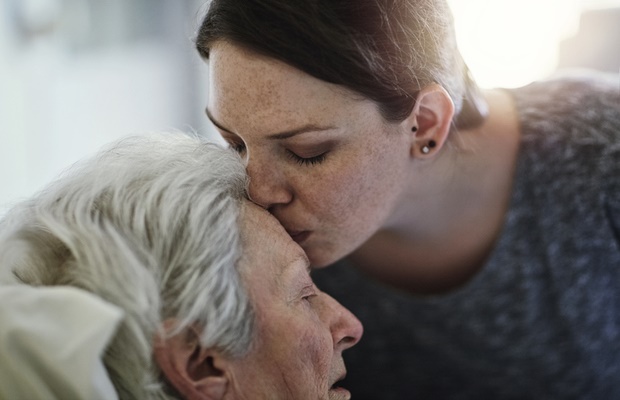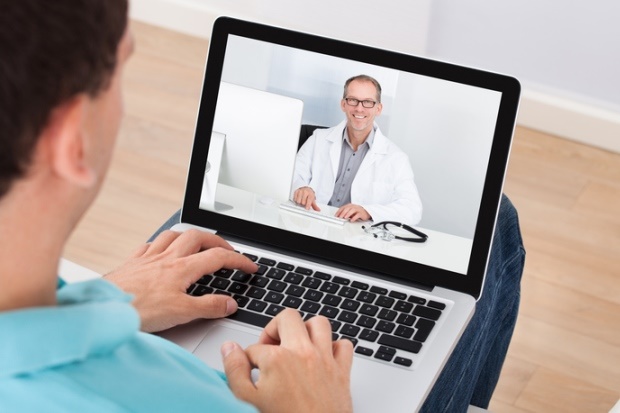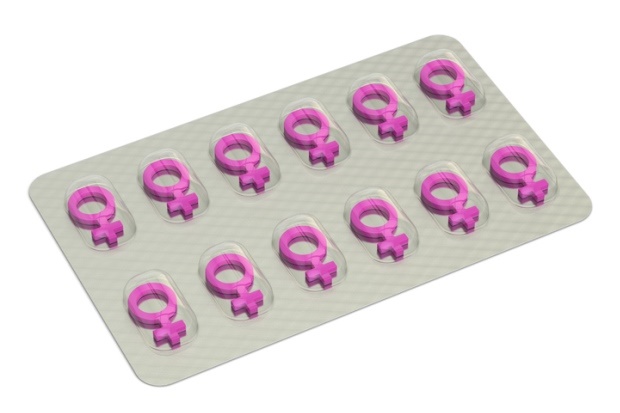Simon Stevens says a plan is needed to keep “selfish revellers” from clogging up A&E at weekends.
Category Archives: Health Tips
Health24.com | 5 ways to take care of an Alzheimer’s sufferer during the holidays
The holiday season can be stressful, especially for people with Alzheimer’s disease.
Not only is there the possibility of strange surroundings for a visiting family member suffering from Alzheimer’s, but the change in routine can also be challenging.
According to Health24, Alzheimer’s disease is one of the most common forms of dementia. It results in progressive deterioration of brain tissue, which leads to memory loss, personality changes, forgetfulness and the inability to carry out ordinary tasks and functions.
How to help
The onset of Alzheimer’s disease can be frustrating for both the sufferer and family. But this doesn’t mean that the holidays should be a heartbreaking experience.
The US National Institute on Aging suggests some simple ways you can help a family member suffering from dementia or Alzheimer’s.
1. Use photos
If you have a relative living with you, a constant influx of visitors can be upsetting if they have difficulty recognising people. Show them a photo of a guest a week before their arrival. Each day show them the photo while explaining who the visitor is.

2. Call ahead
Before visitors arrive, set up a phone call between your loved one and the guest. This will help everyone feel a bit more prepared. Explain to guests that they need to call ahead and check with you before arriving as this will give you more time to put the Alzheimer’s patient at ease.

3. Map out a routine
Stick to daily routines as much as possible. Respect their routines and make it clear that they are not inconveniencing you.

4. Make time for rest
Give the person with Alzheimer’s disease plenty of time to rest. Don’t force them to stay up and join in the activities.

5. A home away from home
When an elderly relative suffering from Alzheimer’s disease is visiting you, a strange room and surroundings might upset them. Make their guest room as comfortable as possible and encourage them to bring familiar bedding along.

Image credits: iStock

Health24.com | 5 best alcohols to drink if you’re trying to lose weight and stay healthy
Between year-end functions, Christmas parties, family gatherings and the impending New Year, our social calendars are jam-packed! The other thing that gets jam-packed? Our liver. Our kidneys. Our bellies.
Read more: This is the best alcohol to drink if you want to lose weight
But not all alcohol is equal. If you’re going to be indulging, try sticking to choices that will give you some benefits too (and like with anything, keep it in moderation):
1. Bubbly
Call it Champagne, MCC, bubbly… it’s all the same thing with a whack of nutrients. The phenolic acid in bubbly has been proven to help improve memory in the long run and the polyphenols can help reduce blood clots! MCCs also contain far less sugar than wine, but if you’re looking for a super-low sugar alternative, look out for brands that say Brut Zero. We recommend Graham Beck’s Brut Zero.
2. Red wine
Our most-fave tipsy tidbit: red wine is actually good for you. Yes, thanks to its antioxidant resveratrol. Try drink lighter styles, such as Pinot Noir, and keep it slightly chilled for summery refreshment.
Read more: Everything you need to know about alcohol and weight gain
3. Vodka
Vodka is lower in kilojoules than other spirits – sorry gin! To stay away from excess sugar, mix your vodka with sparkling water and fresh lime or orange juice. This way you stay hydrated and the fruit takes away some of the sharp alcoholic flavour.
4. Light beer
Our go-to favourite is Windhoek Light because it’s light in alcohol and kilojoules at only 300kJ per bottle and 2.4% alcohol. Castle Lite is the next best bet at 4% alcohol and 413kJ.
5. Tequila
While we’re not suggesting you down a bucket load, if you’re going to be doing shots, choose tequila over those sugar-packed coffee-chocolatey flavoured spirits. And we mean real 100% agave, like El Jimador. The agavins lower triglycerides and cholesterol levels.
Just remember to drink enough water in between and don’t drink on an empty stomach.
This article was originally featured on www.womenshealthsa.co.za
Image credit: iStock
NEXT ON HEALTH24X

Why spending time outdoors could help your child’s eyesight
Worried about the impact of screens on your child’s eyesight? Get them outdoors, say doctors.
Impact of obesity on bone marrow cells
[unable to retrieve full-text content]

Health24.com | 10 of the most fascinating medical advancements of 2017
There has been enormous progress in the medical field over the last century with new developments and discoveries, and considerable refinement of older technologies.
One of the best examples is the world’s first heart transplant, carried out by Professor Chris Barnard at Groote Schuur Hospital in Cape Town in 1967.
Other, perhaps less spectacular but no less significant, advancements include the improvement of prosthetic limbs and the advent of computers which fuelled an explosion of information across the globe.
Each year brings new discoveries and advancements and 2017 was no exception. Here are 10 of the most fascinating medical advancements of this year:
1. Ketamine may be more effective than regular antidepressants
With more than 300 million people worldwide suffering from depression, it can be a challenge to find the right cocktail of drugs. But now there’s new hope as the party drug ketamine, which is normally used as an animal anaesthetic, has shown some promise as a treatment for depression. However, researchers are not yet ready to recommend it because its long-term effects remain unknown.
2. Tweaking your DNA can remove diseases
DNA manipulation has been used over the last few years to eradicate a number of different diseases. By the end of 2017 researchers aim to remove many more diseases from humans by means of genetic manipulation.

3. Change your gut flora to help fight cancer
New research has found that gut bacteria play a key role in the human immune system. The trillions of bacteria and other microbes that live in the human intestines are referred to as the “microbiome”. This finding raises the possibility that manipulating the gut microbiome could improve the chances of responding to especially cancer treatment.
4. Driverless cars can definitely save lives
New reports suggest that the sooner driverless cars make their way onto roadways, the sooner thousands of lives will be saved each year. Although “highly automated vehicles” might be somewhat less than perfectly safe, the introduction of self-driving cars (which are just 10% safer than cars driven by humans) could save hundreds of thousands of lives over a 15- to 30-year period.

5. Check out your unborn baby in 3-D
Researchers say that expectant parents may soon be able to view a three-dimensional virtual reality version of the foetus. An added benefit is that because these 3-D models recreate the entire internal structure of the foetus, it can help doctors detect any abnormalities.

6. Chat to your doctor on your laptop
Imagine not having to drive to visit your doctor. This is becoming a reality as many doctors and therapists see patients via video chat. It is projected that by the end of 2017 more than half of practices in the US will have video chat facilities.

7. A ‘bionic’ eye can help blind people see
Unfortunately there is no cure for eye diseases like macular degeneration. However, a British scientist has developed a device that will help you see as you lose your sight to this disease. Called the Argus II, it takes video images that are converted by a special pair of glasses to electrical pulses that are transmitted wirelessly to the brain where they are registered as shapes, light and dark. This technology should be widely available by the end of 2017.
8. Pills that won’t get stuck in your throat
Many people hate swallowing their daily pills, and soon that might be something of the past. A new pill has been approved by the FDA that dissolves into liquid as soon as you put it into your mouth.
9. A pill to rev up women’s sex drive
There are many drugs on the market to increase a man’s libido and until now there has been nothing for women. The FDA has recently approved a medication called Addyi which is designed to boost low sex drives in women. It is expected to be widely available by the end of 2017.

10. Pacemaker made easy
A new small, wireless pacemaker has been developed. Because it has no wires, there is no chance of infection. There is also no surgery required to implant the device because it is pushed in place through the femoral vein by means of a catheter.
Image credits: iStock

Ehlers-Danlos Syndrome: Woman starts hospital navigation website
A woman starts a website to help disabled people navigate hospitals and flag up their facilities.
How T-cells navigate the rough-and-tumble environment of the bloodstream
[unable to retrieve full-text content]

Overcoming difficulties developing an HIV vaccine
[unable to retrieve full-text content]

Are surgery weight restrictions on the rise?
The use of patients’ weight to limit surgery has been rising in recent years.



